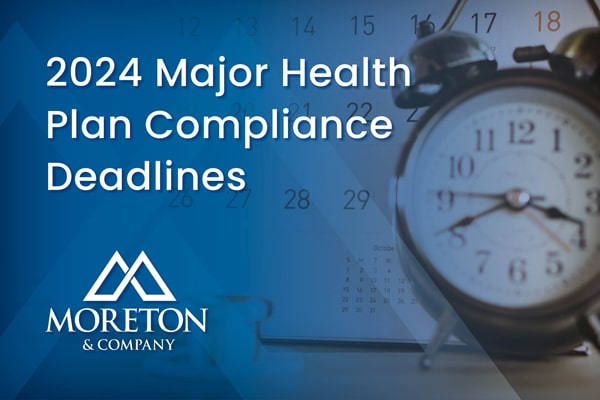
Cancer Prevention Study
An international trial involving almost 1,000 patients with Lynch syndrome revealed that a regular dose of resistant starch – also known as fermentable fiber – taken for an average of two years, did not affect cancers in the bowel but did reduce cancers in other parts of the body by more than half. This outcome was particularly pronounced for upper gastrointestinal cancers, including esophageal, gastric, biliary tract, pancreatic, and duodenum. The study was led by experts at the Universities of Newcastle and Leeds and published in Cancer Prevention Research.
Previous research published as part of the same trial revealed that aspirin reduced cancer of the large bowel by 50%. “We found that resistant starch reduces a range of cancers by over 60%. The effect was most obvious in the upper part of the gut,” explained John Mathers, Professor of Human Nutrition at Newcastle University. “This is important, as cancers of the upper GI tract are difficult to diagnose and often are not caught early on.”
Resistant starch can be taken as a powder supplement and is found naturally in peas, beans, oats, and other starchy foods. The dose used in the trial is equivalent to eating a daily banana; before they become too ripe and soft, the starch in bananas resists breakdown and reaches the bowel, where it can change the type of bacteria that live there.
“Resistant starch is a type of carbohydrate that isn’t digested in your small intestine. Instead, it ferments in your large intestine, feeding beneficial gut bacteria – it acts, in effect, like dietary fiber in your digestive system. This type of starch has several health benefits and fewer calories than regular starch. We think that resistant starch may reduce cancer development by changing the bacterial metabolism of bile acids and to reduce those types of bile acids that can damage our DNA and eventually cause cancer. However, this needs further research.”
“When we started the studies over 20 years ago, we thought that people with a genetic predisposition to colon cancer could help us to test whether we could reduce the risk of cancer with either aspirin or resistant starch,” said Professor Sir John Burn of Newcastle University and Newcastle Hospitals NHS Foundation Trust. “Patients with Lynch syndrome are high risk, as they are more likely to develop cancers. So finding that aspirin can reduce the risk of large bowel cancers and resistant starch of other cancers by half is vitally important. Based on our trial, NICE now recommends Aspirin for people at high genetic risk of cancer, the benefits are clear – aspirin and resistant starch work.”
Newcastle University. “Cancer study: Major preventive effect from resistant starch in people with Lynch syndrome.” ScienceDaily. ScienceDaily, 26 July 2022. <www.sciencedaily.com/releases/2022/07/220725203606.htm>.
Take Charge of Breast Health
Breast exams are critical in detecting cancer early. Clinical exams, breast self-exams (BSEs), and mammograms should be completed regularly to determine if there are changes in breast tissue, which can indicate breast cancer or other conditions.
Clinical Exams & Mammograms
The American Cancer Society recommends clinical breast exams every three years for women between 20 and 45 years old, and annually for women 45 and older. Starting at age 45, healthy women should have yearly mammograms.
How to Perform Self-exams
In between clinical exams and mammograms, women should complete BSEs to become familiar with the look and feel of their breasts when healthy, so that changes can be detected early.
- Lie down and place one hand behind your head.
- Use your middle three fingers on the opposite hand to check your breast tissue in dime-sized circular motions.
- Use an up-and-down motion, starting at your underarm and moving to the middle of your chest, to feel for inconsistency in tissue.
- Standing with your hands on your hips, look in a mirror to identify changes in size, shape, contour, or coloring of your breasts
Breast Tissue Changes
Contact your doctor if you notice any of the following in your breast or nipple tissue:
- Dimpling, red, or scaly skin
- Lumps
- Nipple discharge
- Pain
It is normal for breast tissue to change during menstrual cycles, pregnancy, menopause, or while taking birth control pills or other hormone therapy. If you notice changes at other times in your life, it is strongly suggested that you visit a doctor immediately. More information on breast health is available at ww5.komen.org and www.breastcancer.org.
Mental Health
Why is mental well-being important?
Mental well-being is tied directly to our physical health. Individuals with poor mental health or untreated mental illness are at greater risk of developing chronic conditions like type II diabetes, stroke, heart disease, and obesity.
Poor mental health can also have negative effects on work life, as well as social life. Those with poor mental health may experience productivity issues at work or feelings of withdrawal or loneliness.
How Can You Improve Your Mental Well-being?
Because it’s such a crucial component of your health, it’s important to focus on maintaining or improving your mental health. Here are three simple ways to do so every day:
- Express gratitude. Taking five minutes each day to write down the things we are grateful for has been proven to reduce stress levels and can help change your mindset from negative to positive.
- Get exercise. We all know how beneficial exercise is to our overall health, and it’s true. Exercising can improve brain function, reduce anxiety, and improve self-image.
- Get a good night’s sleep. Strive for seven to eight hours of sleep each night to improve your mental health.
Achieving a State of Mental Well-being Includes Being Able To:
- Realize your full potential
- Work productively
- Cope with the everyday stresses of life
- Contribute meaningfully to your community
Where Can I Learn More?
For more information about maintaining or improving your mental well-being, visit: https://www.nhs.uk/mental-health/self-help/guides-tools-and-activities/five-steps-to-mental-wellbeing/ or consult with your healthcare provider.


